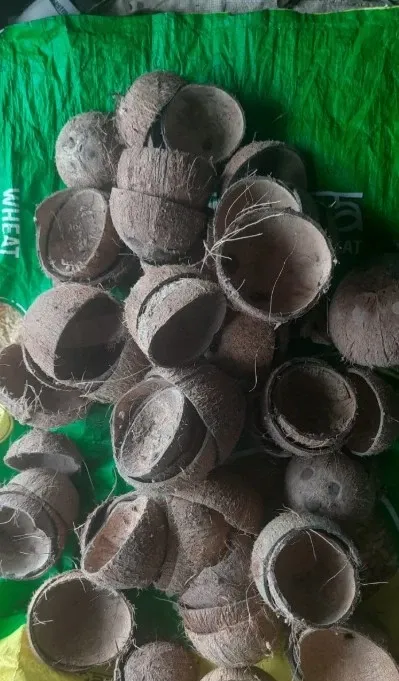How Have Coconut Shells Transformed into a Lucrative Commodity in Kerala?

Synopsis
Key Takeaways
- Coconut shells are now a valuable commodity in Kerala.
- Prices have surged due to industrial demand.
- Households are storing shells for sale.
- The price increase affects household budgets.
- Government is offering subsidies for coconut oil.
Kottayam, Aug 18 (NationPress) Once seen as refuse, coconut shells in Kerala have now become a highly sought-after item, with prices soaring to unprecedented levels due to escalating industrial demand from both domestic and international markets. The price of coconut shells has experienced a remarkable increase, reaching a peak of Rs 35 per kg in certain regions of Kerala over recent months.
Interestingly, just a year prior, coconuts in the state were priced at Rs 30-40 per kg (currently Rs 80-90), while their shells are now fetching up to Rs 35 in many areas.
The value surged from a mere Rs 5 per kg at the start of this year, creating a profitable marketplace for coconut farmers and traders alike.
Industry players have confirmed that this price escalation is primarily driven by a strong demand from both local and foreign sectors.
Subair, a merchant in Kollam, southern Kerala, stated that he sells coconut shells to merchants from Tamil Nadu, who subsequently export them to China and Taiwan, noting that prices in Kollam hit Rs 33.
According to him, these shells are utilized in the production of activated carbon for purposes like water purification, cosmetics, and various industrial uses.
Another trader, Murugan from Erattupetta in Kottayam, remarked that the surge in coconut shell prices up to Rs 35 a kg has elevated it to a high-value product.
Murugan collects shells locally and sells them to traders in Tamil Nadu and Karnataka.
In response to the recent price increase, households in Kerala have started hoarding coconut shells to sell to local traders at better rates.
This sudden uptick in value has transformed coconut shells into a 'gold price' commodity, prompting small-scale entrepreneurs to engage in online collection ventures.
The rapid increase in the prices of coconuts and coconut oil, both staples in Keralite households, has disrupted family budgets statewide.
Currently, a kilogram of coconut is priced around Rs 80-90, while coconut oil costs around Rs 400-500 per kg.
As the Onam festival approaches, this price surge has emerged as a significant political topic, leading the government to announce subsidized sales of coconut oil to alleviate consumer burdens.










